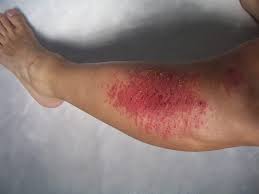
Diabetes is a very serious illness that not only affects the internal organs or tissue of the body, but will also affects the outward parts of your body, particularly your feet and skin. Diabetes has the ability to dry out your skin, making it easier for you to get injured or develop an infection. It will also cause your skin to take a longer time to heal, and protecting your skin should be one of your top priorities, especially if you’re diabetic.
This disease can also cause nerve damage, thereby affecting your skin’s ability to feel sensations, and this increases the probability of hurting yourself without even realizing it. Here are 3 ways you can take care of your skin to avoid developing any skin complications:
1. Always cover your skin

It is particularly important to protect your skin from heat and cold. Avoid spending copious amounts of time in the sun and if you really have to, make sure your skin is well covered. You might have to put on clean socks and long sleeve shirts or blouses for the upper region of your body, in both hot and cold weather.
There’s a greater chance of you cutting yourself or developing blisters if your body is exposed. So make sure your skin is covered at all times.
2. Always keep your skin smooth and soft

When skin gets too dry, it tends to develop little cracks, and these little cracks in turn, provide a platform for fungi or bacteria which lead to further complicated infections. To avoid developing dry and cracked skin, make sure you avoid taking excessively long showers, or other wise spending long periods in water, as this could actually make your skin dry. Use lotion each time you’re done washing your skin, to maintain smoothness.
3. Treat blisters, rashes and cuts with care

If you have diabetes and you’re experiencing rashes or blisters or you’ve noticed a cut in some part of your skin, it’s always important to treat them properly.
You should try taking immediate action, immediately you notice any injury or irritations. Try not to pop the blister because that skin that covers it is what protects it from infections. Gently wash that area daily with soap and warm water.
You could also seek the aid of your doctor who might get you some antibacterial ointment for the affected area. It is also important to secure that area of your skin with a cloth bandage, which should be changed once or twice every day.
Conclusion
It is important to go see your doctor regularly, just general consultations. Also, if you notice any skin irritations, don’t ignore them, but seek medical attention immediately.
An additional tip, especially for women, is to stick to one lotion or ointment, to avoid skin reactions.